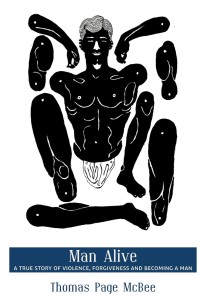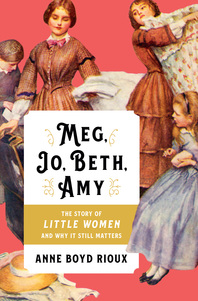
This is a good time to point out that the feminism advocated here at Femmeliterate–that radical notion that women deserve the full rights of citizenship as well as equal protection under the law–is a feminism that advocates equality for all people across the gender spectrum. As hard as the struggle is to win real political and legal equality for women, the fight is even harder for those who don’t fit into the conventional categories of man/woman, whether or not these terms are taken to indicate certain markers of biological sex, gender assignments, or the socially-constructed conceptual terms they are. In including Thomas Page McBee’s Man Alive in a blog about “women in/and/of” literature, I don’t mean to suggest that McBee gets an honorary inclusion because he used to be a woman, or used to identify as a woman, or whatever. I include this book in recognition that the goal of feminism is to recognize and act upon the full humanity–in legal and political terms on paper, and hopefully in social, cultural, emotional, and spiritual terms in concept–of all the citizens of the world. McBee’s moving and astonishing memoir, in being ultimately a reflection on humanity that touches upon and rises above all the usual things we think of as composing the self (masculinity/femininity, our past, our families, our attitudes, our preferences, our character, the stories we tell ourselves), moves toward that same goal. So of course it belongs.
McBee has been thinking for a while on masculinity and what it means in American culture; many of the same themes of his column “Self-Made Man” at The Rumpus appear in the book. “What makes a man?” is a pressing question for someone gender-assigned a woman at birth who has grown up feeling not-right in that body. McBee describes it as “the quiet buzz I’d grown used to” (54), “the vague discomfort that colored every interaction” (130), and one of the book’s most instructive aspects is how it relates the tiny and everyday decisions that the cisgendered never think about: Which bathroom do you use? Which swimsuit do you wear? How do you detect and avoid people likely to treat you with aggression if they perceive you as a woman, or man, or trans, or something threatening to them? How do you navigate the subtle yet constant disfigurement imposed by a language that has no pronoun for the transitioning person, or the personal addresses that range from “miss” to “sir,” “bro” to “ma’am?” As a journal of transition, “an “invisible man filling myself in” (152), McBee memoir is instructive and illuminating, as captured in the Sunday Book Review at the New York Times, the review at Lambda Literary, or this interview with McBee in Esquire. But it is also so much more.
The transition is actually a secondary theme of the book, with the larger and significant focus being on story: the story of our pasts, the story of the motives of the people who hurt us, the narrative of gender and of living in a gendered body, the stories of our loves and pains. McBee begins with trying to categorize the tale he will tell: an adventure story, a ghost story, “an adventure story about how I quit being a ghost” (8). Two searing incidents propel this story: the revelation of child abuse by the man he calls his father, and the mugging in which his attacker lets him go. McBee recognizes how powerful the story he makes of these incidents will be: “our stories intersect and some of them entwine, but I couldn’t be responsible for any but my own” (68). In coming to terms with his past experience, with the abuse that splintered him as a child and the intensely terrifying physical threat that, oddly enough, becomes “the moment I had sprung back to life” (43), McBee realizes that “truth isn’t binary . . . everything, in the end, is a choice” (81), just as “every moment was a decision, a story you told yourself” (147).
For McBee, the narrative journey is one of integration, of achieving that balance where “all of my parts fell into place” (142). “[A] man makes himself” (157), he discovers, as we each tell our own tale, design our own life-story, engage in the moment-to-moment process of self-creation in which we, like McBee, can choose tenderness, generosity, understanding, the ability to be “powerful and fragile at once” (84). The masculinity that McBee achieves is one that our culture would be all the better for embracing: “I’m not the kind of man that destroys something smaller than me” (143) McBee finds; “I was the kind of man that refused to make another one a monster” (148). Claiming his story is a matter not just of confronting the men who injured him or even making a narrative of his own experience but coming to peace with his own body: “I could let my body deliver me, I could trust its instincts. I could know myself” (148).
This kind of self-awareness and acceptance, the understanding “that I could be all of my selves at once” (132) is perhaps the key to healing the dissonance of our entire fractured culture. Rather than concerning ourselves with the intactness of our labels and the boundaries between them, we would be better off designing a world in which everybody is empowered to live up to their full potential. After her child confessed to abuse from the hands of his so-called father, McBee’s mother reminds him, “you are perfect at your center” (105). Of every quote-worthy line in the book, that struck me as the most beautiful, the truth I most want to communicate to my children. We are all perfect at our center. Imagine a world in which we are allowed to manifest this perfection on our visible outsides, without judgment, without fear, without worrying about what we ourselves will lose if we empower someone else. McBee’s memoir is triumphant not just in its culmination of “becoming a man” (161), in his ability to be “stricken with tenderness” (144), in its conquering of fear or its realization of exoneration, that “we all have the chance to be more than the worst that’s done to us” (107). It is triumphant in its realization that “sometimes, our stories are all we have” (64), and how we tell them, and mean them, matters enormously.
